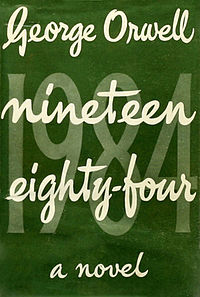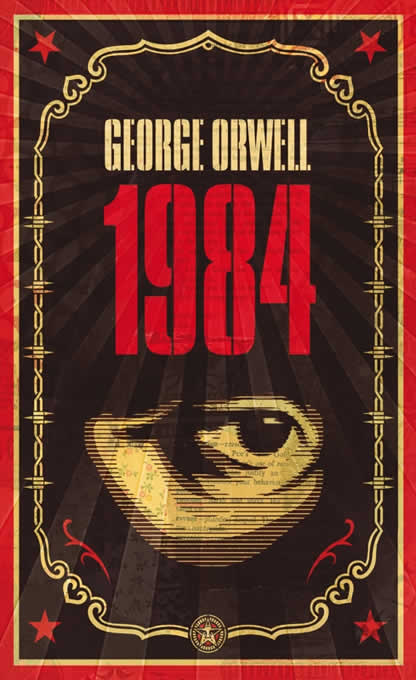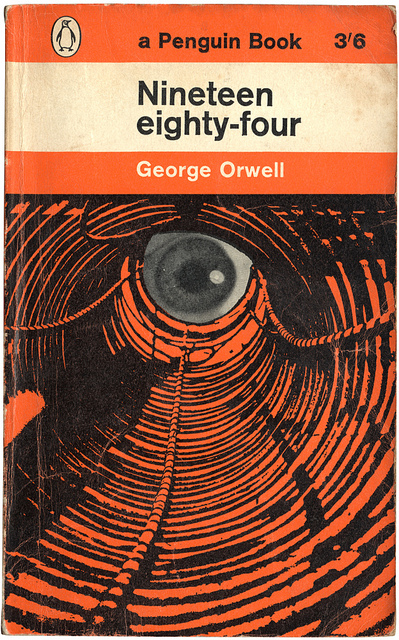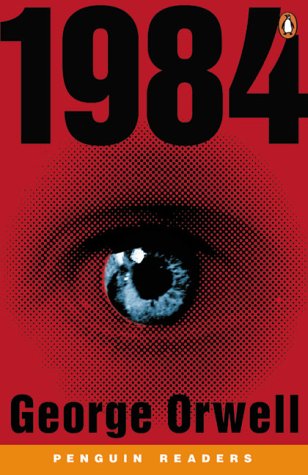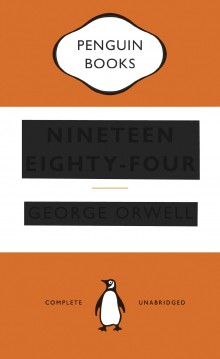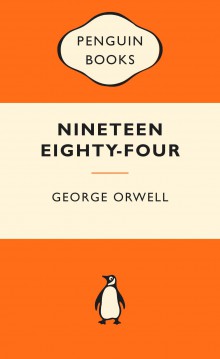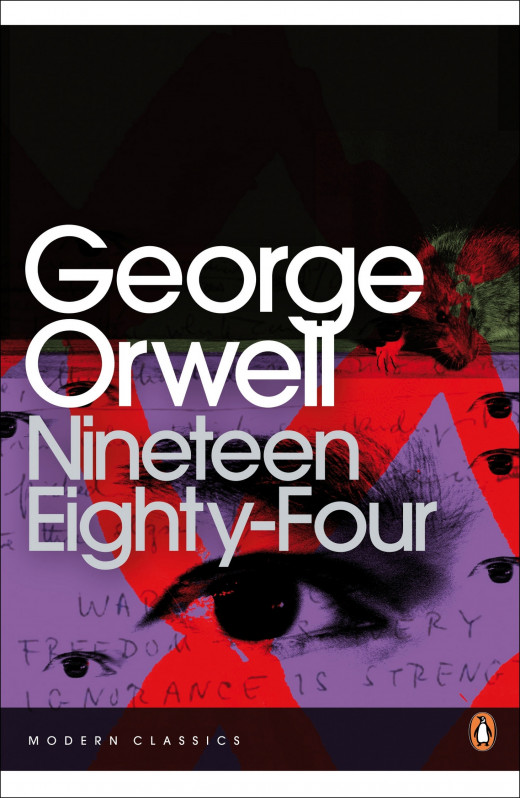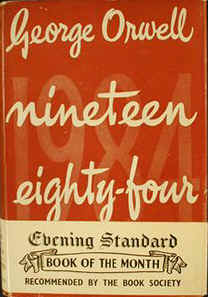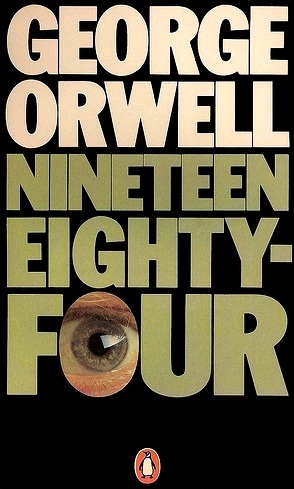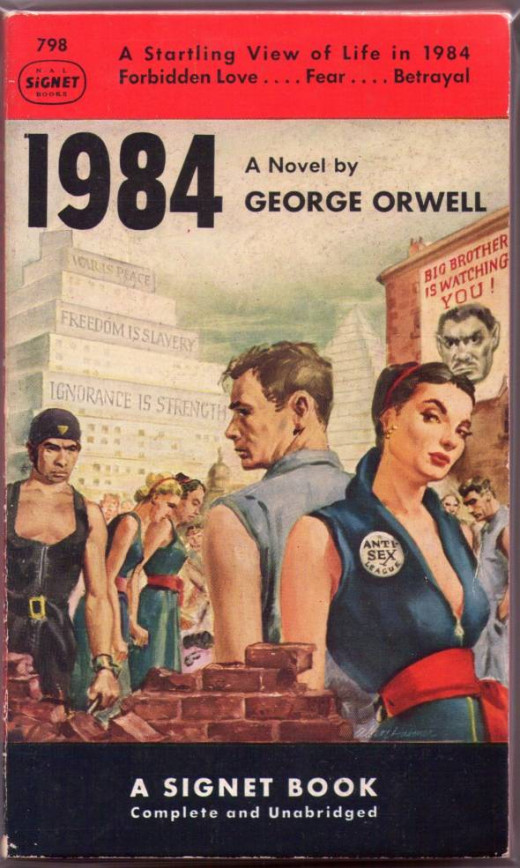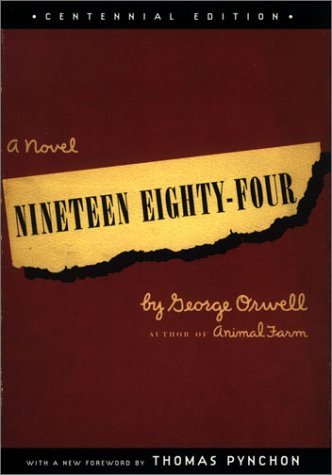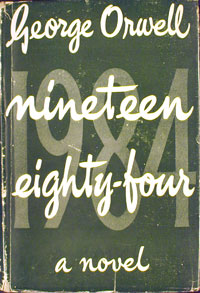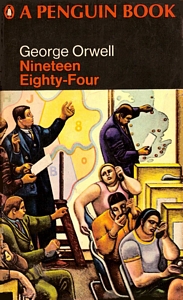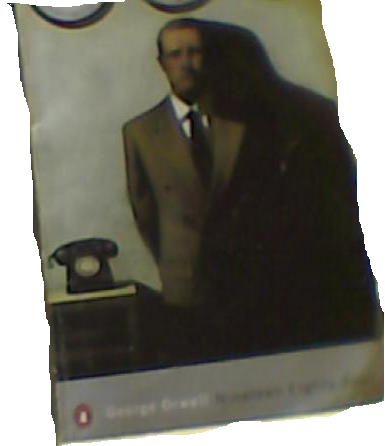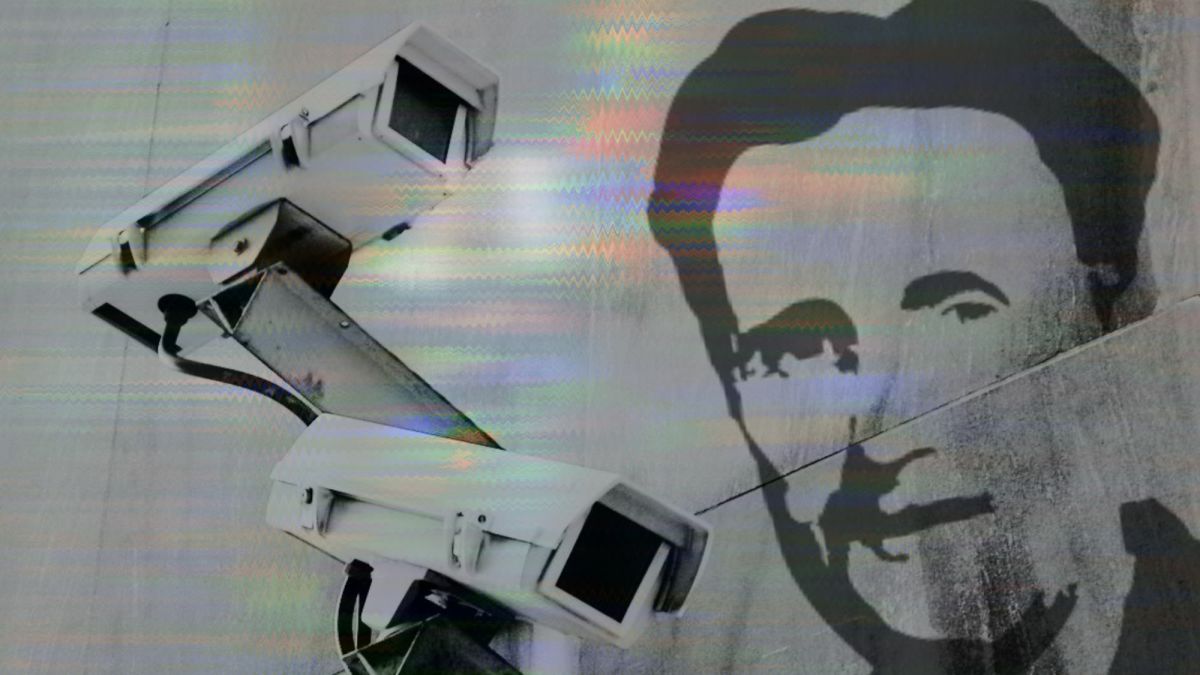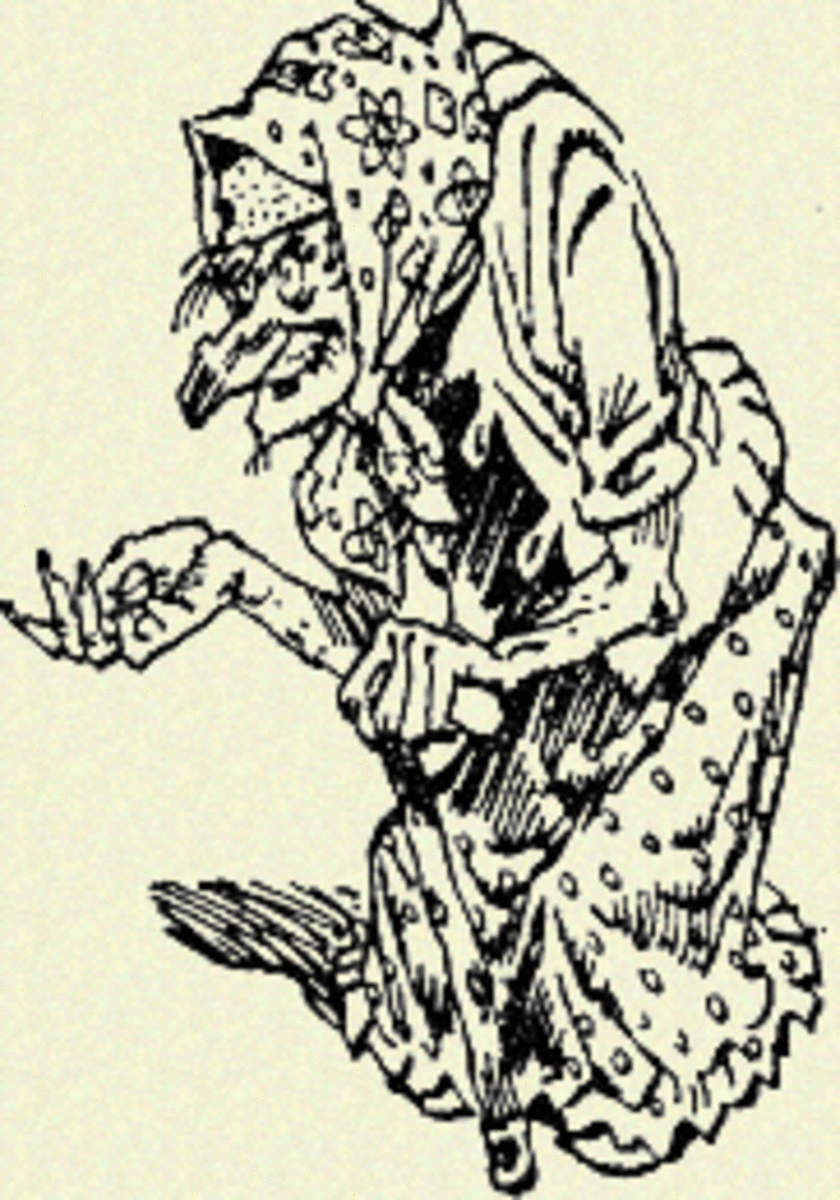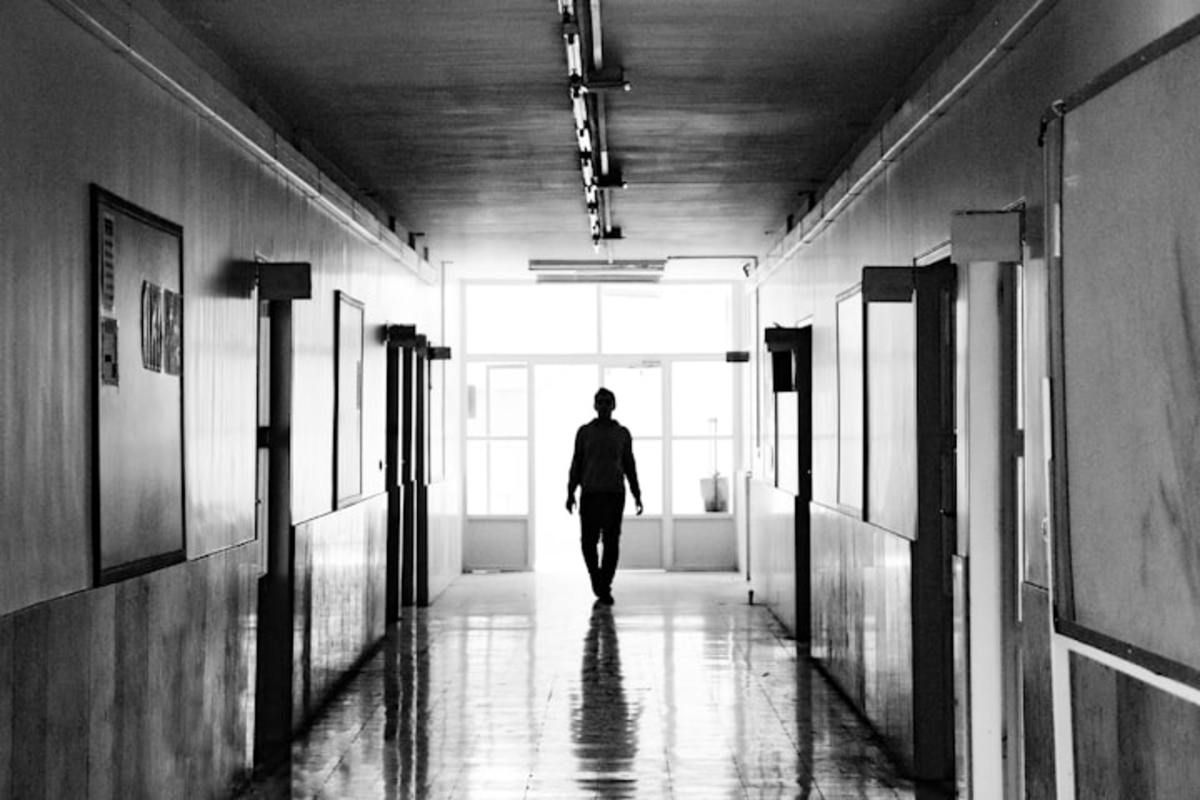A Bluffer's Guide To Great Books: Nineteen Eighty-Four, by George Orwell















Is it a bird? Is it a plane? No, it’s one of the C20th’s super-novels – Nineteen Eighty-Four!
A warning, a prophecy, or just a story?
In retrospect, it can be seen as all three. Indeed, it would appear to have over-fulfilled its literary quota and moved from being a Sci-Fi inspired future-history novel, to become a piece of historical fiction. The old, worn-out debate about its prophetic significance has gone by the board; look around you – do you get the feeling you are being watched?
But the significance of this novel is not merely that it pointed the way, however doomily, but that it did so so thoroughly, so tangibly, so well. The grit, the dust, the despair: one can taste all three in Orwell’s carefully constructed dystopia; the terrible gin, the awful food, the rickety cigarettes, and not just these - the chained-up words, the visible thoughts, the cowering fears and traitorous dreams..
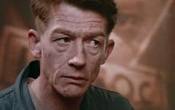

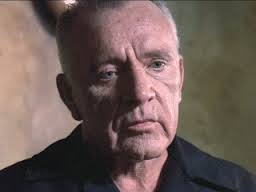
The Main Characters
Winston Smith works for MiniTru (the Ministry of Truth - in other words, the totalitarian government's propaganda arm), where he destroys inconvenient facts and replaces them with suitable fictions.
An Outer-Party member, he was married, but is now separated and lives alone in a grim little flat in Victory Mansions.
There, in an alcove hidden from the prying eye of the telescreen, he writes treasonable thoughts in a recently purchased notebook. He is, in the words of the regime, a thought-criminal. He hates Big Brother (the notional leader of the Party and the state) and hopes for a future when humanity may once again live and think freely.
Julia is a worker in the Porn section of MiniTru, and despite her apparent fidelity to the cause of the Party (which includes membership of the AntiSex League) she is also a thought criminal and rebel, who takes delight in having illicit sex with as many Party members as she can. The thrill is as much that of revolt as it is of sensuality.
O'Brien is an Inner-Party member whom Smith takes at first to be a part of the secret opposition. He is in fact a stalwart of the Party who draws Smith out and then imprisons, tortures and brainwashes him.
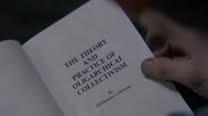
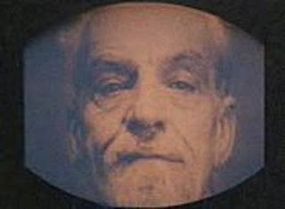
The Plot
Winston Smith commits thought-crime by 'secretly' writing anti-Party slogans in a newly acquired notebook.
He attracts the attention of Julia (another undercover rebel) and O'Brien, an Inner-Party member.
Julia and Winston visit the countryside and make love. They later rent a room where they continue their illicit affair.
O'Brien invites Smith to his apartment, where he hands over the latest edition of the Newspeak dictionary, which contains within it the subversive Anti-Party book The Theory and Practice of Oligarchical Collectivism.
Winston and Julia are arrested in flagrante delicto by the Thought Police and taken off to the Ministry of Love where they are tortured (Smith by O'Brien, in reality a Thought Policeman) and only released when they have both been thoroughly brainwashed into accepting Big Brother.
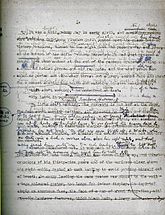
Words, words, words
Nineteen Eighty Four (amongst other things) is a primer on how to write – including how not to write, if you aspire to being a compleat human being. Unsurprisingly, Orwell attaches great importance to words, and much of the novel centres around what is and isn’t said, and especially what is sayable. All sorts of things get said, and then unsaid. Some things get said that should never have been said, and can never be unsaid. “Do it to Julia!”, for instance.
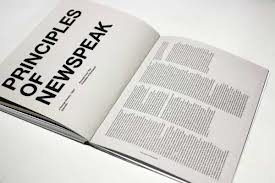
Newspeak
In Orwell’s terrible world, Newspeak words have become so well established that they are themselves almost as real as chocolate bars once were and, conversely, by the operation of these new words, certain other things lose their substantiality. Such as Love, Peace and Freedom. Orwell was a big fan of Swift and in Gulliver's Travels the academicians of the Grand Academy of Lagado, have begun to replace words with the objects themselves. In Airstrip 1, words are beginning to replace other words, and with them their attendant ideas and emotions.

Ratting
At the heart of the novel is betrayal - the betrayal of one's real thoughts and feelings; the betrayal of others, even lovers; and perhaps above all, the betrayal of language, that slippery swarm of referents, made manifest in Smith's Room 101 horror of horrors - rats.
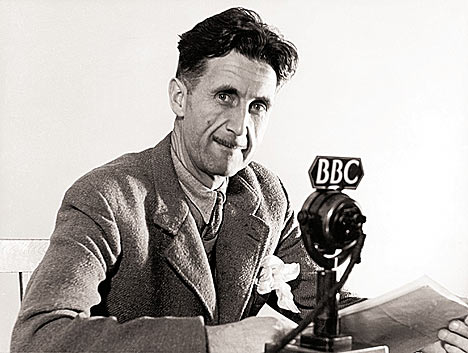
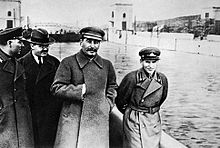
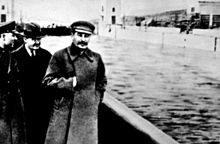
The Historical Background
Orwell was a socialist, not a communist - and certainly not a Stalinist. He had already fallen foul of the Communists during the Spanish Civil War whilst fighting for the Nationalist side. The communists were supposed to be on the same side as Orwell and his POUM* comrades , but they had a different agenda, and that did not include the support of a party with Trotskyite origins.
The Stalinist style of government was totalitarian, and pursued much the same policy as IngSoc, the Party in Orwell's novel - everything was subsumed to the interests of the Party and had little to do with the liberation of the workers, or anyone else for that matter. The point of the Party is the Party itself, and both IngSoc and Stalin's regime employed much the same terror and propaganda methods. In particular, Winston's rewriting of history was commonplace in the Soviet Union (see illustration), as well as spying on the populace by the security services. The only difference is that Orwell's Party is technically more sophisticated and much further advanced in the destruction of ordinary language and prevention of Thoughtcrime.
Orwell was long dead when CCTV and electronic spying became so prevalent, but he would have recognised the totalitarian implications of our modern system of public surveillance and may have had a lot to say about our modern version of the telescreen - the computer with a camera attached.
You have been warned!
*Partido Obrero de Unificación Marxista/Workers' Party of Marxist Unification
Nineteen Eighty-Four - John Hurt, Richard Burton
Further reading & resources
The 23rd greatest fiction book of all time
This book is on the following lists:
- 4th on The Greatest 20th Century Novels (Waterstone)
- 6th on Koen Book Distributors Top 100 Books of the Past Century (themodernnovel.com)
- 9th on Radcliffe's 100 Best Novels (Radcliffe Publishing Course)
- 10th on D. G. Myers’ 50 Greatest English Language Novels (D. G. Myers)
- 13th on 50 Books to Read Before You Die (Complex)
- 13th on The Modern Library | 100 Best Novels (Modern Library)
- 21st on The Telegraph’s 100 Novels Everyone Should Read (Telegraph)
- 22nd on Le Monde's 100 Books of the Century (Le Monde)
- 30th on 20th Century's Greatest Hits: 100 English-Language Books of Fiction (Larry McCaffery)
- 46th on 100 Essential Books (Bravo! Magazine)
- 59th on The 100 Greatest Novels of All Time: The List (The Observer)
- 59th on The 100 Greatest Novels (greatbooksguide.com)
- 91st on The Novel 100: A Ranking of the Greatest Novels of All Time (The Novel 100)
- Great Books (The Learning Channel)
- The Graphic Canon (Book)
- Recommended Books (Academy of Achievement)
- 50 Books That Changed the World (Open Education Database)
- Select 100 (University of Wisconsin-Milwaukee)
- 100 Best Novels Written in English (The Guardian)
- 100 Books to Read in a Lifetime (Amazon.com (UK))
- 50 Books to Read Before You Die (Barnes and Noble)
- TIME Magazine All Time 100 Novels (TIME Magazine)
- The Best Classics (The Times)
- 110 Best Books: The Perfect Library (The Telegraph)
- Top 100 Works in World Literature (Norwegian Book Clubs, with the Norwegian Nobel Institute)
- 100 Most Influential Books of the Century (Boston Public Library)
- The 100 Most Influential Books Ever Written (Martin Seymour-Smith)
- 100 Books to Read in a Lifetime (Amazon.com (USA))
- 50 Books to (Re-)Read at 50 (nextavenue)
- Books That Changed the World: The 50 Most Influential Books in Human History (Book)
- The New Lifetime Reading Plan (The New Lifetime Reading Plan)
- Masterpieces of World Literature (Frank N. Magill)
- The Book of Great Books: A Guide to 100 World Classics (Book)
- From Zero to Well-Read in 100 Books (Jeff O'Neal at Bookriot.com)
- "Our Readable Century", The Best Books of the 20th Century (January Magazine)
© 2013 KevinStantonMcClintockMACantab

